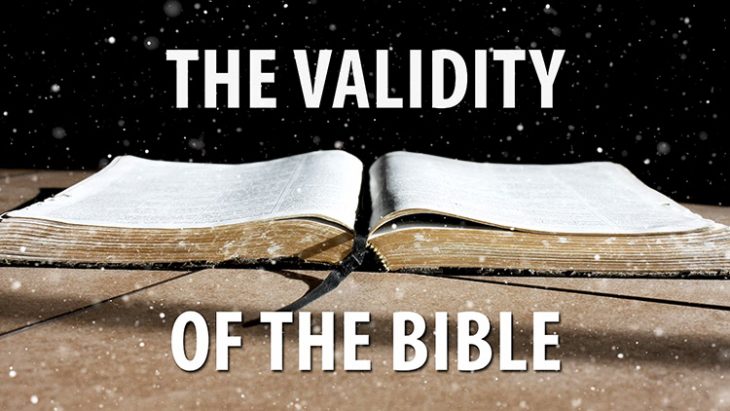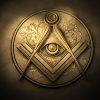In a recent episode of Christ in Prophecy, we responded to some of the most frequently asked questions that Lamb & Lion Ministries receives concerning the integrity of the Bible.
Why was a scary book like Revelation included in the Bible?
Tim Moore: Well, is it scary? It’s not really scary if you are a believer in Christ. Rather, the book is filled with wonderful promises and provides Christians with the assurance that in the end, everything will work out to the glory of God and to the deliverance of those who believe in Him. So, again, Revelation is not a scary book if you are saved.
People misunderstand when claiming the book of Revelation came from the Apostle John. No, from the very opening verses of Revelation the book declares that this is the revelation of Jesus Christ. Jesus determined that His plans were worth revealing so that those of us who have placed their faith in Him can have hope for the future.
Nathan Jones: Just read Revelation 1:3 and you’ll discover that Revelation is the only book in the Bible that offers a blessing if you read it. “Blessed is he who reads, and those who hear the words of this prophecy, and keeps those things which are written in it for the time is near.” When you read the book of Revelation you are promised a blessing.
What is the best version of the Bible? Which version should I use?
Nathan Jones: The best version of the Bible is to read it in the original Hebrew and Greek, but most of us cannot read Hebrew and Greek. I used to know a college professor who sat in our small group Bible study and he read from a Greek Bible. He had the “best” Bible.
I would say that if the King James works for you, that’s great. If you use the NIV, which I used for years, and that helps you grow in the Lord, then great that it works for you. I now use the New King James version. Dr. Reagan, I know you use the NASB. Tim?
Tim Moore: I use the NASB or the ESV, but I would say whatever Bible you will read is the best Bible, because if you will read it you will be blessed.
Dr. Reagan: That was what Billy Graham always used to say. Whatever Bible you’ll read, then read it!
Tim Moore: Exactly! Let’s not get caught up in debates about what is the best translation. I do think that there are some translations that are more accurate to the ancient text, but as Nathan said, very few of us can read in the original Hebrew, or the Greek Septuagint, or even the Latin Vulgate. So, pick a version that’s most easy to read and understand, and read it. Then you will be hungering for more, and maybe you will try a different version.
Dr. Reagan: I look forward to every new version that comes out because, even though I may not agree with the translation of a certain word, or maybe the attached commentary is too liberal in its interpretation, I will always learn things by reading it. I get insights that I hadn’t had before.
In fact, when I was growing up, the only Bible we had was the King James. To me, it was like reading Shakespeare. As a kid, I just couldn’t get excited about reading it. When I was a freshman in college back in 1956, my parents sent me a Bible for Christmas. It was the J.B. Phillips paraphrase of the New Testament. I started reading it and I just couldn’t put it down. I read it all the way through. Then another paraphrase came out years later by Tyndale Press called the Living Bible, and I found I loved it as well. Paraphrases are not for serious study, not at all, but they are wonderful for helping you to better understand some things.
I once interviewed Dr. Charles Ryrie who had produced the Ryrie Study Bible. He highly recommended paraphrases for people, particularly those who were just starting out reading the Bible, and particularly when reading the Old Testament. Paraphrases give one a feel for difficult chapters before they should move on into a serious study of the Bible using the New King James, or the King James, or the New American Standard, and so on. So, just get a Bible and read it!
What is the Apocrypha?
Tim Moore: That’s a good question, as many Protestants are mystified as to how the 66 books of the Bible came to be compiled, and why the Catholic version has even more books. The Apocrypha includes some books that were produced before the early years of the Church during the 400 silent years between the Old and the New Testaments. These books were found to not have a valid source, or that their doctrines conflicted with the teaching of Jesus Christ. They were naturally left out of the canon and compiled into what came to be called the Apocrypha. The writers of the New Testament did not reference the Apocryphal books.
Dr. Reagan: They were never recognized as canon or Scripture by the Jews themselves either.
Nathan Jones: You can tell the books are fakes when you read the Apocrypha. I read through the Apocrypha’s six books: Tobit, Judith, Wisdom, Ecclesiasticus, Baruch, and 1 and 2 Maccabees. Other writers added to existing books, such as adding a dragon to the book of Daniel. Clearly, the early Church Fathers knew that these books were not inspired by God. Some provide good historical reading, especially 1 and 2 Maccabees. But, it’s easy to see why the Early Church Fathers left these books out of the canon of Scriptures.
Dr. Reagan: Why then was the book of Ecclesiastes included in the Bible as it reads like it is written by a carnal man?
Tim Moore: Ecclesiastes demonstrates to me that the Bible is faithful. How many times do we read in Scripture how some of the heroes of the faith fell? Even David himself was portrayed as a man with faults. If we were writing a book and wanted to create a hero figure, we wouldn’t include anything that was negative about that person in their biography. But, the Bible is honest. Ecclesiastes is clearly written by a person who is honest in testifying as to how they thought in a wrong manner, which they end up revealing at the end of the book. Many believe King Solomon wrote Ecclesiastes. At the end of the book he wrote, “The conclusion when all has been heard is; fear God and keep His commandments because this applies to every person, for God will bring every act of judgment, everything which it is hidden whether it is good or evil.” How many of us would testify over the scope of our lives that at times we were misguided in how we lived out God’s truth, but later we came to a realization of the truth. I think Ecclesiastes provides a beautiful proof that the Bible is honest.
Dr. Reagan: Well, it certainly is. I praise God for the book because, again, it shows the fact that its author had tried everything in the world to fill the vacuum in his heart, but none of it had worked. Only God can fill the God-shaped vacuum in our hearts.
David Reagan: Only #God can fill the God-shaped vacuum in our hearts. Click To Tweet







I enjoyed this series of articles about the Bible. While my study Bibles are the KJV and NIV, I use the Bible Gateway on my phone for my daily reading. It allows me to read thru the Bible using a different translation each time.
So good to hear the series has been a blessing to you, Michael! I use Biblegateway every day as well. It’s like my right arm.